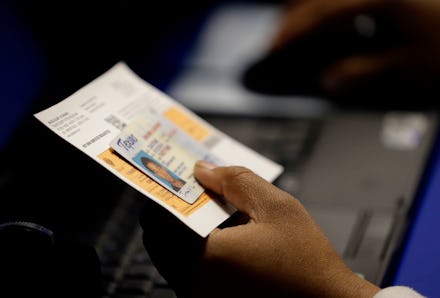Federal Courts Strike a Huge Blow to Voter ID Laws in Texas and Wisconsin

The Supreme Court blocked Wisconsin's voter ID law Thursday, and a federal judge knocked down Texas's proposed law that would have required citizens to procure government-issued identification in order to vote.
U.S. District Judge Nelva Gonzales Ramos ruled that the Texas law was akin to an "unconstitutional poll tax intended to discriminate against Hispanic and African-American citizens," the Daily Beast reported. Though the laws were meant to prevent voter fraud, critics argue they discriminate against citizens who don't have photo IDs, many of whom are elderly or minorities.
The ruling, which comes less than a month before the midterm elections, could allow an estimated 600,000 Texans, mostly black and Hispanic voters who lack photo ID, to cast a ballot, according to the Associated Press.
As the laws have largely been upheld in previous rulings, the Associated Press reports Thursday's rulings "as major and somewhat surprising blows to largely Republican-backed voter identification rules sweeping the nation."
The Supreme Court did not detail its reasoning for a change of heart in the Wisconsin case, but the ruling was not unanimous. Justices Samuel Alito, Antonin Scalia and Clarence Thomas dissented.
"We are extremely heartened by the court's decision, which affirms our position that the Texas voter identification law unfairly and unnecessarily restricts access to the franchise," U.S. Attorney General Eric Holder said in a statement. "We are also pleased that the Supreme Court has refused to allow Wisconsin to implement its own restrictive voter identification law."
Even if Wisconsin and Texas decide to petition to appeal the decisions, the deadline would make it nearly impossible for the law to be reinstated before the elections in November.
So, at least for this election, voters can wait in line at the ballot boxes, not at the DMV.